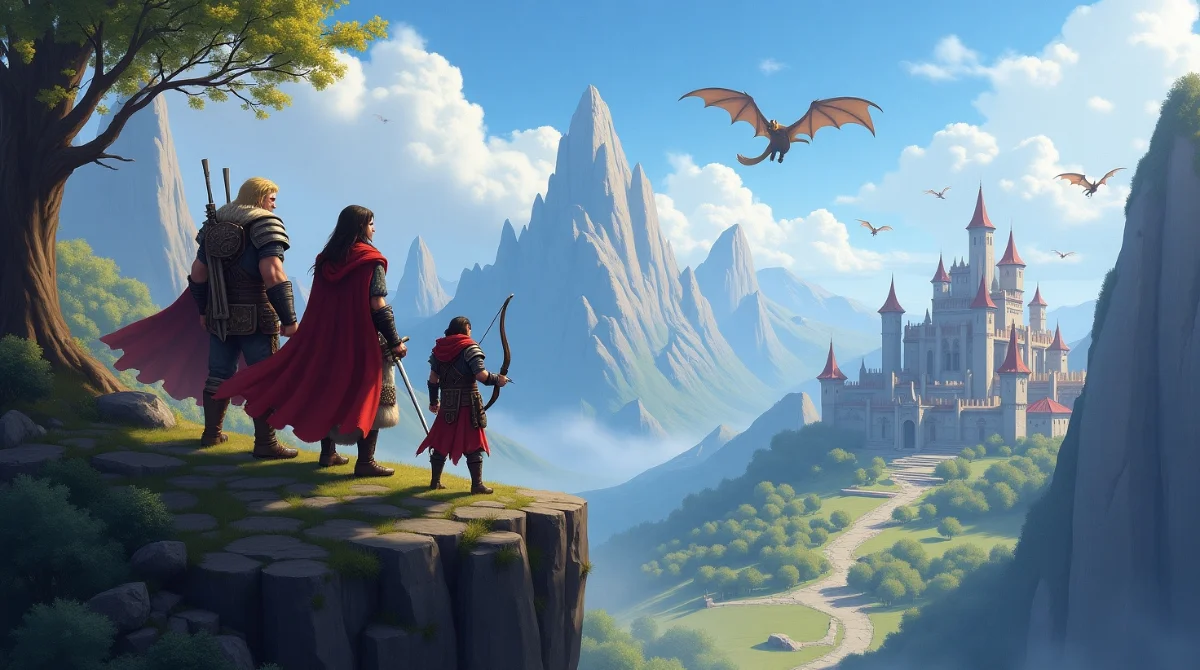Players take on the roles of characters in a fictional world in the well-known genre of role-playing video games, or RPGs.These games offer immersive experiences, allowing players to explore vast worlds, engage in compelling narratives, and develop their characters over time.
What Is a Role-Playing Video Game?
At its core, a role-playing video game is one where players control a character or a group of characters and make decisions that influence the game’s outcome. These decisions can affect the storyline, character development, and interactions with other in-game characters. RPGs often feature quests, battles, and exploration elements, providing a rich and engaging gameplay experience.
Key Features of RPGs
1. Character Development
One of the defining aspects of RPGs is character progression. Players earn experience points (XP) by completing tasks, defeating enemies, or achieving specific goals. Accumulating XP allows characters to level up, enhancing their abilities, unlocking new skills, and improving attributes like strength, intelligence, or agility.
2. Storytelling and Choices
RPGs are renowned for their deep narratives. Players often face choices that can alter the game’s direction, leading to multiple endings or varied story paths. This branching narrative structure encourages replayability and personal investment in the game’s world.
3. Exploration and World-Building
These games typically feature expansive worlds filled with towns, dungeons, forests, and other locales to explore. The detailed environments and lore-rich settings immerse players, making exploration a rewarding aspect of gameplay.
4. Combat Systems
Combat in RPGs can range from turn-based systems, where players and enemies take turns attacking, to real-time action combat. Players must strategize, utilizing their characters’ unique skills and abilities to overcome challenges.
A Brief History of RPGs
The origins of role-playing video games trace back to the 1970s, inspired by tabletop games like Dungeons & Dragons. Early computer RPGs, such as “pedit5” developed in 1975, laid the groundwork for the genre. As technology advanced, so did the complexity and scope of RPGs, leading to the diverse and rich experiences available today.
Popular RPG Titles
1. The Elder Scrolls V: Skyrim
Released in 2011, “Skyrim” offers an open-world experience where players can explore the vast province of Skyrim, engage in numerous quests, and develop their character in a multitude of ways. Its modding community has kept the game fresh and relevant for years.
2. Final Fantasy Series
This long-standing series is known for its compelling stories, memorable characters, and evolving gameplay mechanics. Each installment offers a unique world and narrative, with “Final Fantasy XVI” being the latest entry, blending classic elements with modern action-packed gameplay.
3. Fallout Series
The “Fallout” series blends decision-making, survival, and exploration in a post-apocalyptic setting.Players navigate the wasteland, interact with various factions, and make choices that shape the game’s world and story.
4. Baldur’s Gate
Based on the Dungeons & Dragons universe, “Baldur’s Gate” offers a deep narrative and strategic combat. Its rich storytelling and character interactions have made it a classic in the RPG genre.
Subgenres of RPGs
Action RPGs
These games focus on real-time combat and often feature fast-paced gameplay. Titles like “Dark Souls” and “Elden Ring” challenge players with difficult enemies and intricate world designs.
Tactical RPGs
Emphasizing strategy, tactical RPGs require players to think critically about positioning and resource management. Games like “XCOM” and “Fire Emblem” are excellent examples.
MMORPGs
Massively Multiplayer Online Role-Playing Games allow thousands of players to interact in a shared world. “World of Warcraft” and “Final Fantasy XIV” offer expansive worlds where players can team up, complete quests, and engage in large-scale battles.
RPGs in Pop Culture
RPGs have had a massive influence on pop culture. Characters and stories from games like “The Witcher,” “Final Fantasy,” and “Mass Effect” have inspired movies, TV shows, books, and merchandise. Gaming celebrities, streamers, and content creators often build their careers by playing and reviewing RPGs, further spreading their popularity.
The Evolution of RPGs
RPGs have gotten more immersive as a result of technological developments. Virtual Reality (VR) and Augmented Reality (AR) are beginning to influence the genre, offering new ways to experience these games. Additionally, the integration of online features has allowed for more dynamic and social gameplay experiences.
Conclusion
Role-playing video games offer diverse experiences, from epic adventures to intimate character studies. Their emphasis on storytelling, character development, and player choice makes them a beloved genre among gamers. There is a huge selection of RPGs just waiting to be discovered, regardless of your level of experience.
Related Topic: The Game Archives Gameverse: A Digital Gaming Hub



